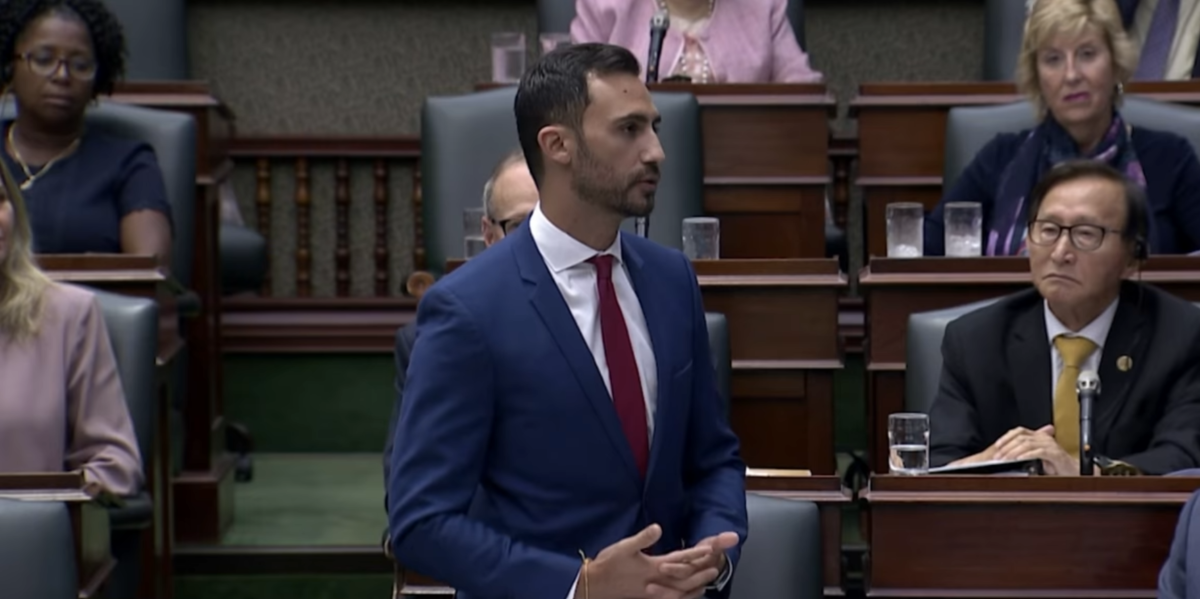The Ontario School Board Council of Unions (OSBCU) said they received a disappointing first offer from the Council of Trustees’ Association (CTA) and the Ministry of Education on August 15. OSBCU served their notice to bargain on June 3, the first day they were legally allowed to do so. As the August 31 expiry date of their current collective agreement inches closer, OSBCU has expressed frustration with how little they have met with the government and the CTA for bargaining.
Education workers and OSBCU have emphasized that they hope to get a new collective agreement before the school year starts. Despite the looming school year, it looks as though it will take a while for OSBCU, CTA and the government of Ontario to see eye to eye.
“We are disheartened with what was passed,” said OSBCU president Laura Walton during an online press conference. “Education workers across this province are fighting to stay out of poverty, while they fight to provide the services that we know that students, families and communities need.”
On August 2, OSBCU delivered a full package of bargaining proposals to the CTA. This package included proposals for a $3.25 hourly wage increase for each year of the proposed three year term of the collective agreement. OSBCU also asked for equal pay for casual and temporary employees whose wages are lagging behind full-time hourly rates. Beyond the wage asks, OSBCU also proposed improvements to benefits, limits to staffing cuts, establishing a minimum weekly hours of work for full-time employees and violence prevention training.
Union demands rejected as “not fiscally sustainable”
The CTA and the Ministry delivered a counter offer on August 15. In their preamble, they said that the OSBCU’s proposals were not fiscally sustainable.
The CTA and the Ministry proposed a two per cent increase for members making less than $40,000 a year and a 1.25 per cent increase for those making more than $40,000. The CTA also made no commitment to paying temporary and casual workers the same rate as full-time employees.
“The CUPE/OSBCU proposal provides for cumulative compensation increases of about 52% over the CUPE/OSBCU proposed 3-year term of the agreement,” the Ministry wrote in their preamble. “This includes the wage increase of about 37% and related compensation requests.”
The Ministry said that “related compensation requests” include the proposals around preparation-time, overtime pay and professional development.
The CTA also expressed a need for sustainability in their preamble.
“In order to ensure the current sick leave plan is viable moving forward and that employees can continue to access the plan when they most need it, it must be sustainable,” the CTA wrote. “Absenteeism has a negative impact on students’ achievement and places a significant strain on school board budgets. Moreover, in order to best meet the needs of students, the CTA is looking for more flexibility in determining which classifications and positions school boards allocate staffing funds to.”
Pay increases for education workers will not keep up with inflation
While fiscal sustainability is a major concern for CTA, Walton is concerned about the quality of life for workers. She said that education workers cannot survive off what was proposed. Walton said that the proposed wage increases, when calculated with the average yearly wage of education workers, amounts to only $800 a year.
“What’s really concerning is that this is the government that talks about better jobs and bigger paychecks,” Walton said. “I’m not sure if $800 In the face of rising inflation can be considered a bigger paycheck. It’ll be completely swallowed up and given the inflation as it is, this is a pay cut to education workers.”
OSBCU also pointed to “concerning concessions” included in the proposal.
“There are a number of concessions, including concessions to sick leave which would reduce the income of members who are heading towards short term disability leave down to 25 per cent at the time that they would need it the most. Also, there’s concessions when it comes to services and service security that remove any service security that existed today,” Walton said.
According to a table published by OSBCU, the concessions relating to job security and service security could mean that school boards could cut staff between existing levels which would deny students the services they need.
Since the collective agreement for OSBCU members expired, OSBCU says that the government has been postponing action for some time.
By August 11, OSBCU reported that the government had met with education workers’ representatives only five times out of the 70 days between then and June 3, when they served the notice to bargain.
Though the starting positions of OSBCU and the government seem far, Walton said that the bargaining team will continue to push for a fair deal.
“There is a lot of “status quo” and “maintain” in their proposal,” Walton said. “Which is really odd considering we are seeing unprecedented cost increases… this is a time where we actually need to grow and not maintain.



